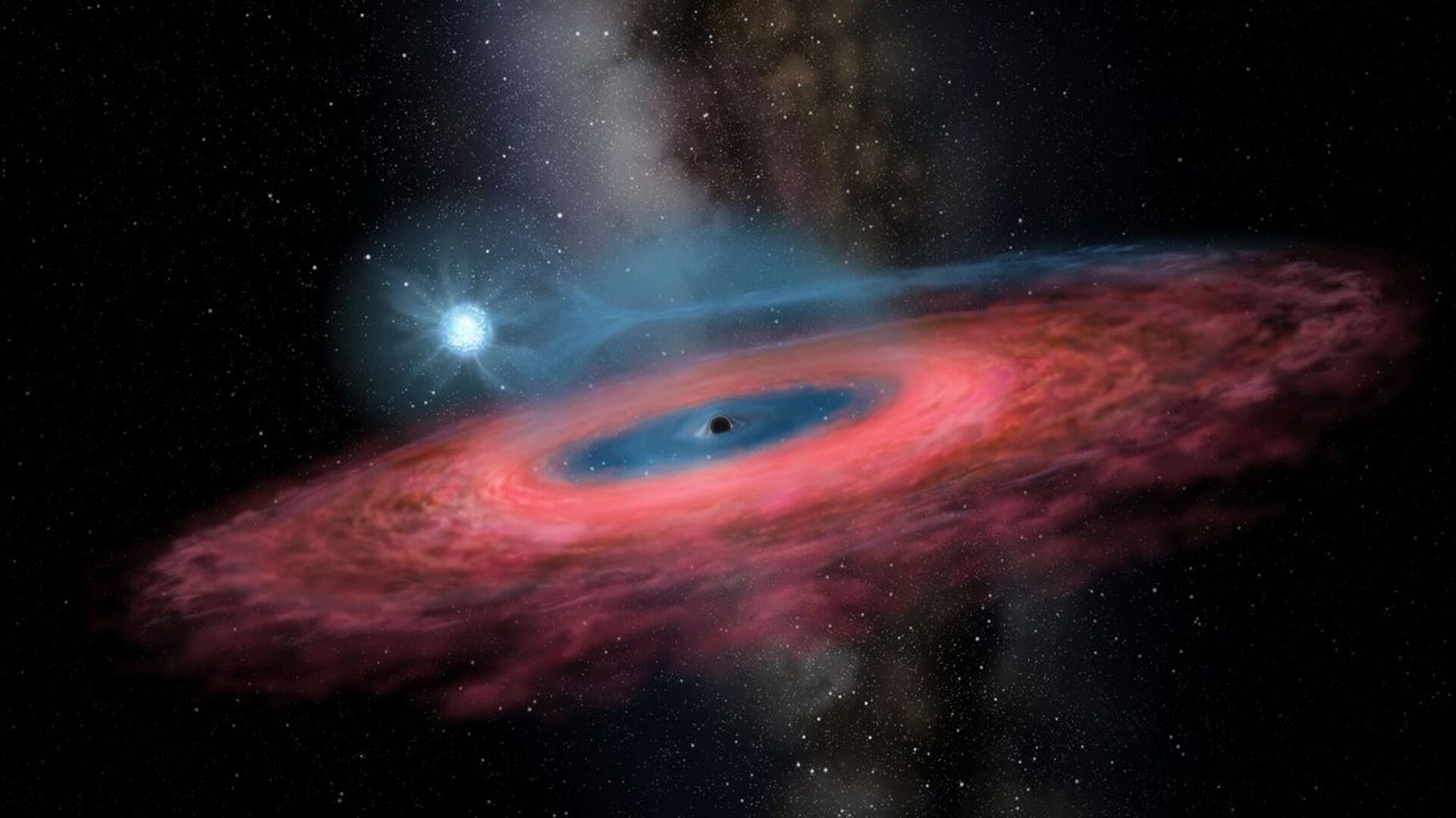https://sputnikglobe.com/20210901/earth-could-be-swallowed-by-wandering-black-hole-claims-new-study-1083770105.html
Earth Could be Swallowed by Wandering Black Hole, Claims New Study
Earth Could be Swallowed by Wandering Black Hole, Claims New Study
Sputnik International
Black holes are regions of space-time where the levels of gravity are so strong that nothing – not even light – can escape them. Therefore anything that gets... 01.09.2021, Sputnik International
2021-09-01T15:02+0000
2021-09-01T15:02+0000
2021-09-01T15:02+0000
science & tech
society
newsfeed
black hole
supermassive black hole
https://cdn1.img.sputnikglobe.com/img/107742/39/1077423962_3:0:1196:671_1920x0_80_0_0_b7657d49ee1984d7f3483edd1e53036b.jpg
Goods news, earthlings: we no longer need to fret about the coronavirus pandemic, because we’ve got bigger problems – wandering black holes and supermassive black holes, which researchers from Harvard University say could gobble up our planet in the blink of an eye.According to a study, published recently in the journal Monthly Notices of the Royal Astronomical Society, black holes involuntarily become vagabonds when their host galaxy collides with another one, which is usually bigger.This process sends black holes wandering and, as mentioned earlier, if it gets close to a planet the consequences would be beyond tragic. The scientists came to this conclusion after they ran a simulation test that showed formation and movement of black holes and supermassive black holes (as the name implies, these black holes have a mass of millions or even billions of times the mass of the Sun).Although researchers suggest that the chance of being consumed by a black hole is real, the odds are not big.
Sputnik International
feedback@sputniknews.com
+74956456601
MIA „Rossiya Segodnya“
2021
News
en_EN
Sputnik International
feedback@sputniknews.com
+74956456601
MIA „Rossiya Segodnya“
Sputnik International
feedback@sputniknews.com
+74956456601
MIA „Rossiya Segodnya“
science & tech, society, newsfeed, black hole, supermassive black hole
science & tech, society, newsfeed, black hole, supermassive black hole
Earth Could be Swallowed by Wandering Black Hole, Claims New Study
Black holes are regions of space-time where the levels of gravity are so strong that nothing – not even light – can escape them. Therefore anything that gets too close to black holes, even stars and planets, is doomed.
Goods news, earthlings: we no longer need to fret about
the coronavirus pandemic, because we’ve got bigger problems – wandering black holes and supermassive black holes, which researchers from Harvard University say could gobble up our planet in the blink of an eye.
According to a study,
published recently in the journal Monthly Notices of the Royal Astronomical Society, black holes involuntarily become vagabonds when their host galaxy collides with another one, which is usually bigger.
This process sends black holes wandering and, as mentioned earlier, if it gets close to a planet the consequences would be beyond tragic. The scientists came to this conclusion after they ran a simulation test that showed formation and movement of
black holes and supermassive black holes (as the name implies, these black holes have a mass of millions or even billions of times the mass of the Sun).
Although researchers suggest that the chance of being consumed by a black hole is real, the odds are not big.
"Don’t worry, the odds of us encountering a wandering supermassive black hole are vanishingly small. Space is so vast that even when two galaxies containing hundreds of billions of stars merge together, their stars do not collide. If there really were a supermassive black hole right in our vicinity, we would be able to detect its presence from the motions of nearby stars", said Dr Angelo Ricarte from Harvard University and author of the study.

